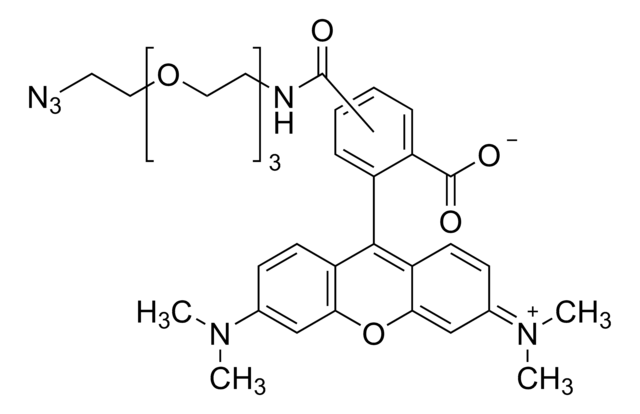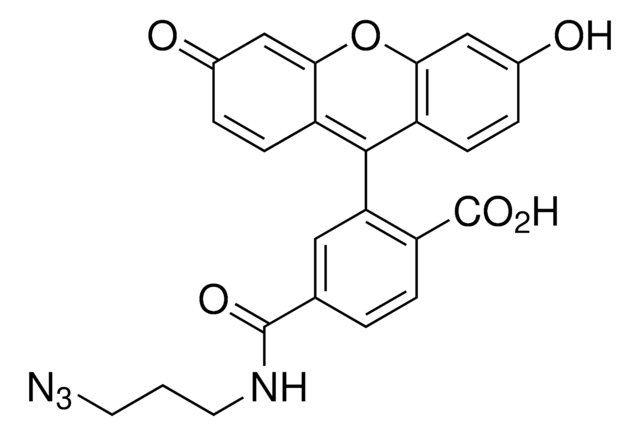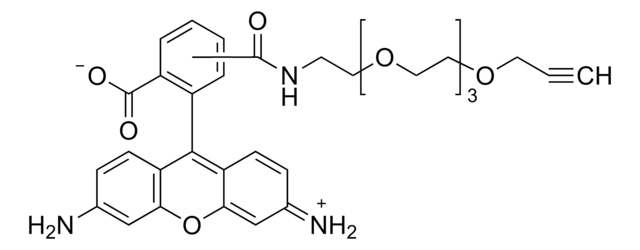760765
Azide-fluor 488
≥90% (HPLC)
Synonym(s):
Rhodamine 110-azide
Sign Into View Organizational & Contract Pricing
All Photos(4)
About This Item
Empirical Formula (Hill Notation):
C29H30N6O7
Molecular Weight:
574.58
UNSPSC Code:
12352125
NACRES:
NA.22
Recommended Products
Quality Level
Assay
≥90% (HPLC)
form
solid
reaction suitability
reaction type: click chemistry
storage temp.
−20°C
Application
Rhodamine 110 conjugated PEG azide. Can be used to detect or label alkyne- or cyclooctyne-containing molecules or biomolecules by fluorescence spectroscopy following azide-alkyne cycloaddition.
Spectral Properties: Abs/Em = 501/525 nm
Spectral Properties: Abs/Em = 501/525 nm
Storage Class Code
11 - Combustible Solids
WGK
WGK 3
Flash Point(F)
Not applicable
Flash Point(C)
Not applicable
Choose from one of the most recent versions:
Already Own This Product?
Find documentation for the products that you have recently purchased in the Document Library.
Chemical tools for studying the biological function of glycolipids.
Stocker BL & Timmer MS
Chembiochem, 14(10), 1164-1184 (2013)
Synthesis and Conjugation of Alkyne-Functional Hyperbranched Polyglycerols.
Moore E, et al.
Macromolecular Chemistry and Physics, 217(20), 2252-2261 (2016)
Two-step local functionalization of fluoropolymer Dyneon THV microfluidic materials by scanning electrochemical microscopy combined to click reaction.
Slim C, et al.
Electrochemical Communications, 60, 5-8 (2015)
Indole-induced Reversion of Intrinsic Multi-antibiotic Resistance in Lysobacter enzymogenes.
Han Y, et al.
Applied and Environmental Microbiology, AEM-00995 (2017)
Drawing in poly (e-caprolactone) fibers: tuning mechanics, fiber dimensions and surface-modification density
Kim SE, et al.
Journal of Material Chemistry B: Materials for Biology and Medicine (2017)
Articles
Explore the principles and applications of click chemistry in drug discovery, highlighting efficient reactions that streamline the synthesis of bioactive compounds.
Our team of scientists has experience in all areas of research including Life Science, Material Science, Chemical Synthesis, Chromatography, Analytical and many others.
Contact Technical Service






![Tris[(1-benzyl-1H-1,2,3-triazol-4-yl)methyl]amine 97%](/deepweb/assets/sigmaaldrich/product/structures/179/695/86a721c8-2a4c-4e4f-bc36-6276ce7a941f/640/86a721c8-2a4c-4e4f-bc36-6276ce7a941f.png)

